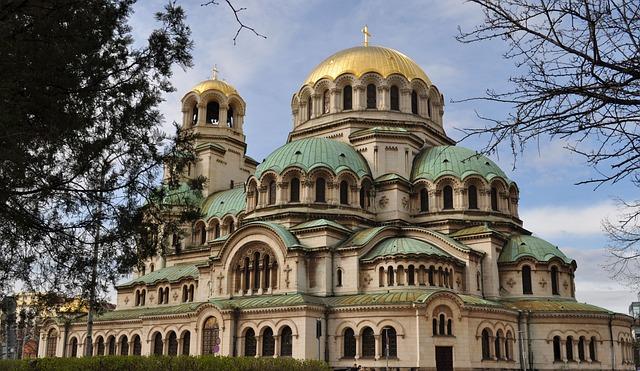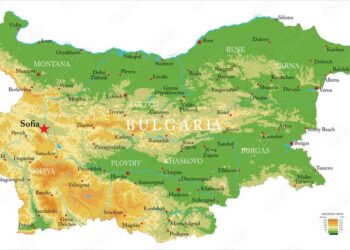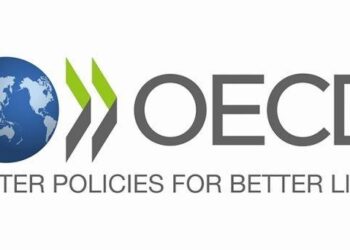In the wake of recent global crises that have challenged educational systems worldwide, Bulgaria has undertaken a pioneering initiative aimed at ensuring equal access to school education for all students. The “Bulgaria’s Equal Access to School Education in Times of crisis” project, in collaboration with the Organisation for Economic Co-operation and Development (OECD), seeks to address the growing disparities in educational opportunities exacerbated by economic instability, social challenges, and public health emergencies. this project not only highlights Bulgaria’s commitment to educational equity but also serves as a case study for other nations grappling with similar issues. By exploring innovative strategies and policy measures, Bulgaria aims to pave the way for a more inclusive educational framework that can withstand the vicissitudes of modern crises, ensuring that every child has the opportunity to learn and thrive, regardless of their circumstances.
Understanding Bulgarias Equal Access to School Education in Times of Crisis Project
Bulgaria’s initiative to ensure equal access to school education during crises addresses the unique challenges faced by vulnerable populations, particularly children from marginalized backgrounds. As part of this project, several key components have been identified to improve educational outcomes and foster inclusivity. These components include:
- Enhanced Digital Infrastructure: Expanding internet access and integrating technology into classrooms to bridge the educational gap.
- Tailored support Programs: Implementing personalized learning strategies and psychological support for affected students.
- Community Engagement: Collaborating with local organizations to create awareness and involve families in the educational process.
- Teacher Training Initiatives: Equipping educators with the skills necessary to address the emotional and academic needs of students in crisis situations.
The project also aims to gather data and evaluate its impacts using thorough metrics that focus on both academic performance and mental well-being.A key aspect of this evaluation involves tracking student enrollment, attendance rates, and academic achievements across different demographics. the following table summarizes the anticipated outcomes:
| Outcome Category | Target Metric | Current Status |
|---|---|---|
| Enrollment Rate | Increase by 20% | 75% |
| Attendance Rate | Achieve 90% | 85% |
| Academic Performance | Betterment of 15% | Baseline Established |

Key Challenges Faced by Bulgarian students During the Crisis
The ongoing crisis has substantially impacted various aspects of education in Bulgaria, revealing systemic weaknesses and magnifying existing inequalities. Bulgarian students have encountered numerous obstacles, impacting their learning experiences and overall well-being. Among these challenges are:
- Digital Divide: Many students lack access to reliable internet and digital devices, hindering their ability to participate in online learning effectively.
- Economic Strain: Families facing financial difficulties have struggled to provide essential resources, such as books and materials necessary for learning.
- Mental Health Issues: The uncertainty and isolation brought on by the crisis have exacerbated anxiety and mental health problems among the youth.
- Inadequate Support Systems: Schools have been ill-equipped to provide counseling and academic support during these challenging times, leaving students to cope alone.
Moreover, the educational framework has seen a strain in maintaining quality teaching. With shifting to remote learning, many educators faced their own challenges, such as adapting lesson plans and teaching methodologies. This resulted in:
| Issue | Impact on Students |
|---|---|
| Poor Teacher Preparedness | Inconsistent quality of instruction across different schools. |
| Loss of Timely Feedback | Delayed learning progress and understanding of material. |
| Limited Extracurricular Activities | Reduction in social interaction and emotional development. |

The Role of OECD in Supporting Bulgarias Educational Initiatives
The OECD has played a pivotal role in enhancing Bulgaria’s educational landscape,particularly through initiatives aimed at ensuring equal access to quality education during challenging times. By offering expert analyses and data-driven recommendations, the association has empowered Bulgarian authorities to identify critical gaps in the educational system and implement effective strategies. This collaboration underscores the importance of tailored educational policies that consider the unique socio-economic challenges faced by students and families in Bulgaria.
Key factors of the OECD’s support include:
- Policy Guidance: Providing frameworks that promote inclusive education and address disparities.
- Capacity Building: Facilitating training programs for educators to enhance teaching methods and student engagement.
- Data Collection: Conducting assessments to monitor educational outcomes and identify areas for improvement.
In addition, the OECD has assisted in establishing a framework for sustainable educational reforms through periodic evaluations and comparative studies with other nations.this not only fosters a culture of continuous improvement in bulgaria but also encourages innovation in educational practices that prepare students for future challenges.

Innovative Strategies for Ensuring Continuity of Education
In light of recent crises,Bulgaria has implemented a series of innovative strategies to maintain continuity in education. One key initiative involves leveraging digital platforms to ensure that learning remains accessible to all students, regardless of their circumstances.Educators are equipped with training modules specifically designed to enhance their skills in digital teaching methods, thus enabling them to deliver engaging lessons remotely. Moreover, a dedicated online resource centre has been established, offering a wealth of teaching materials, interactive tools, and support for both teachers and parents.This approach not only facilitates ongoing education but also fosters an adaptive learning environment.
Additionally, the project emphasizes collaborative partnerships with local communities and NGOs, creating networks that enhance educational outreach. Some of the notable strategies include:
- Mobile Education Units: Deploying mobile classrooms in remote areas to reach students lacking access to formal schooling.
- Community Learning Hubs: Setting up safe spaces where students can gather,access technology,and receive mentoring.
- Tele-counseling Services: Providing psychological support and guidance to students coping with the emotional challenges posed by the crisis.
These multifaceted approaches contribute to a resilient educational framework that prioritizes inclusivity and adaptability,ensuring that every child has the opportunity to succeed,irrespective of external challenges.

Recommendations for Enhancing educational Equity in Bulgaria
To foster a more equitable educational landscape in Bulgaria, it is essential to implement a multi-faceted approach that addresses systemic barriers. Investing in teacher training is paramount, equipping educators with the skills necessary to support diverse learners, particularly those from marginalized communities. additionally, strengthening community involvement in schools can create a supportive environment where families feel empowered to engage in their children’s education. Key initiatives could include:
- Targeted outreach programs to educate parents about available resources
- Partnerships with NGOs to provide tutoring and mentorship opportunities
- Enhancing digital literacy to ensure all students can access online learning tools
moreover, maintaining funding consistency during crises is crucial for sustaining educational quality. Establishing a national funding formula that accounts for socio-economic disparities can definitely help allocate resources to schools in need effectively.A transparent monitoring system should be developed to track the implementation and impact of equity initiatives. Consider creating a framework with the following components to enhance accountability:
| Component | Description |
|---|---|
| Data collection | Regular assessments of student performance and equity metrics |
| Stakeholder Feedback | engaging students,parents,and teachers in decision-making processes |
| Resource Allocation | Directing funds to under-resourced schools based on collected data |

Measuring Success: Indicators for Future Educational Outcomes
As the OECD evaluates Bulgaria’s initiative aimed at ensuring equal access to education during crises, establishing clear indicators for measuring success becomes paramount. Key metrics may include:
- Enrollment Rates: Tracking changes in student enrollment, particularly among marginalized communities.
- Academic Performance: assessing standard test scores and grade progression to gauge learning outcomes.
- Dropout Rates: Monitoring trends in student retention and transitions to upper education levels.
Another crucial component is the availability and accessibility of resources, which directly influence educational equity. To this end, indicators should encompass:
- Resource Allocation: Evaluating funding distribution across schools serving disadvantaged populations.
- Teacher Quality: Measuring factors such as teacher-student ratios and continuous professional development opportunities.
- Parental Engagement: Analyzing participation in school activities and interaction efficiency between home and school environments.
Insights and Conclusions
the ”Bulgaria’s Equal Access to School education in Times of Crisis Project,” backed by the OECD, represents a crucial step towards ensuring educational equity in a rapidly changing global landscape. With the impact of crises, whether economic, political, or health-related, the importance of accessible education becomes even more pronounced. By prioritizing inclusive policies and innovative strategies, Bulgaria aims to bridge the gap for vulnerable student populations and create a more resilient educational framework. As the project unfolds, its successes and challenges will serve as valuable lessons not only for Bulgaria but also for nations worldwide grappling with similar issues. Continuous monitoring, evaluation, and adaptation will be key to achieving sustainable progress in equal access to education and ensuring that every child, regardless of circumstance, is empowered to reach their full potential. The commitment to these goals lays the groundwork for a brighter future where education does not merely survive crises but thrives in their wake.














